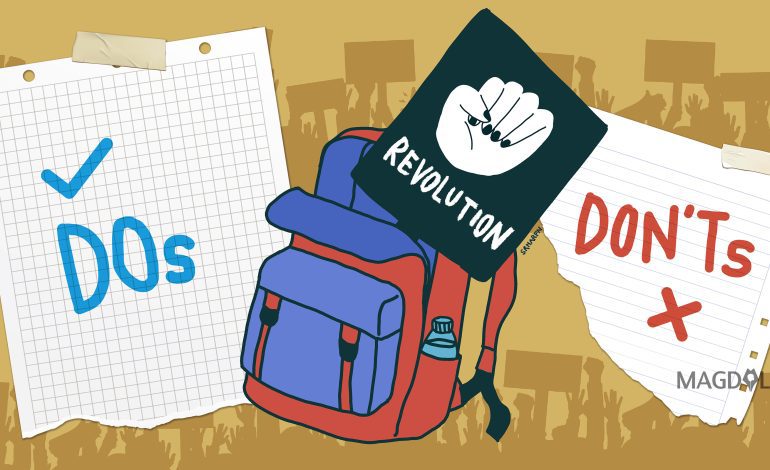What Are Gender Pronouns and Why Is It Important to Use The Right Ones?

Gender pronouns are the terms people choose to refer to themselves that reflect their gender identity. These might be he/him, she/her or gender-neutral pronouns such as they/them.
Knowing and using a person’s correct pronouns fosters inclusion, makes people feel respected and valued, and affirms their gender identity.
The Difference Between Sex and Gender
While people may use the terms sex and gender interchangeably, they mean different things.
Sex refers to the physical differences between people who are female, male, or intersex. A person typically has their sex assigned at birth based on physiological characteristics, including their genitalia and chromosome composition.
This is distinct from gender, which is a social construct and reflects the social and cultural role of sex within a given community. People often develop their gender identity and gender expression in response to their environment.
While gender has been defined as binary in Western culture, gender is on a broad spectrum; a person may identify at any point within this spectrum or outside of it entirely. Gender is not neatly divided along the binary lines of “man” and “woman”.
People may identify with genders that are different from sex assigned at birth, some people do not identify with any gender, while others identify with multiple genders. These identities may include transgender, non-binary, or gender-neutral.
Also read: Why I would Fight to Defend My Tattoos and My Non-Binary Expression
Only the person themselves can determine what their gender identity is, and this can change over time.
Gender Neutral Pronouns
People who identify outside of a gender binary most often use non-gendered or non-binary pronouns that are not gender specific. These include they/them/their used in the singular, ze (pronounced “zee”) in place of she/he, and hir (pronounced “here”) in place of his/him/her.
Everyone has the right to use the gender pronouns that match their personal identity. These pronouns may or may not match their gender expression, such as how the person dresses, looks, behaves or what their name is.
Why the Right Pronouns Matter
It’s important people, workplaces and organizations support people’s use of self-identified first names, in place of legal names given at birth, and self-identified pronouns, in place of assumed pronouns based on sex assigned at birth or other’s perceptions of physical appearance.
Being misgendered and/or misnamed may leave the person feeling disrespected, invalidated and dismissed. This can be distressing and threaten the person’s mental health.
Transgender and non-binary people are twice as likely to have suicidal thoughts than the general population, and are up to four times as likely to engage in risky substance use.
Also read: The Vicious Cycle We Have Created for Transgender Women in Indonesia
Conversely, using correct pronouns and names reduces depression and suicide risks. Studies have found that when compared with peers who could not use their chosen name and pronoun, young people who could experienced 71 percent fewer symptoms of severe depression, a 34 percent decrease in reported thoughts of suicide and a 65 percent decrease in suicide attempts.
7 Tips for Getting Pronouns Right
The following tips might help you better understand gender pronouns and how you can affirm someone’s gender identity.
- Don’t assume another person’s gender or gender pronouns
You can’t always know what someone’s gender pronouns are by looking at them, by their name, or by how they dress or behave.
- Ask a person’s gender pronoun
Asking about and correctly using someone’s gender pronouns is an easy way to show your respect for their identity. Ask a person respectfully and privately what pronoun they use. A simple “Can I ask what pronoun you use?” will usually suffice.
- Share your own gender pronoun
Normalize the sharing of gender pronouns by actively sharing your own. You can include them after your name in your signature, on your social media accounts or when you introduce yourself in meetings. Normalizing the sharing of gender pronouns can be particularly helpful to people who use pronouns outside of the binary.
- Apologize if you call someone by the wrong pronoun
Mistakes happen and it can be difficult to adjust to using someone’s correct pronouns. If you accidentally misgender someone, apologize and continue the conversation using the correct pronoun.
- Avoid binary-gendered language
Avoid addressing groups as “ladies and gentleman” or “boys and girls” and address groups of people as “everyone”, “colleagues”, “friends” or “students”. Employers should use gender-neutral language in formal and informal communications.
- Help others
Help others use a person’s correct pronouns. If a colleague, employer or friend uses an incorrect pronoun, correct them.
- Practice!
If you’ve not used gender-neutral pronouns such as “they” and “ze” before, give yourself time to practise and get used to them.
This article was first published on The Conversation, a global media resource that provides cutting edge ideas and people who know what they are talking about.






















